Netflix’s 2020 Veterans Day offering, ‘The Liberator,’ is a story of incredible courage and conviction. The miniseries is a dramatized version of the true story of U.S. Army officer Felix Sparks (Bradley James) and his E Company, 157th Infantry Regiment, who were involved in a 500-day-long campaign during which they saw combat in Italy, France, and Germany. What set Sparks’ squad apart from others is that it was comprised of Native Americans, Mexican Americans, and Dust Bowl cowboys, groups that didn’t get along well back in the U.S.
However, in Europe, under Sparks’ command and facing a determined enemy, they learned to put aside their differences and work together. Created by Jeb Stuart (‘Die Hard’) and directed by Greg Jonkajtys, the miniseries utilizes Trioscope Enhanced Hybrid Animation and is an adaptation of Alex Kershaw’s 2012 book, ‘The Liberator: One World War II Soldier’s 500-Day Odyssey.’ SPOILERS AHEAD.
The Liberator Recap
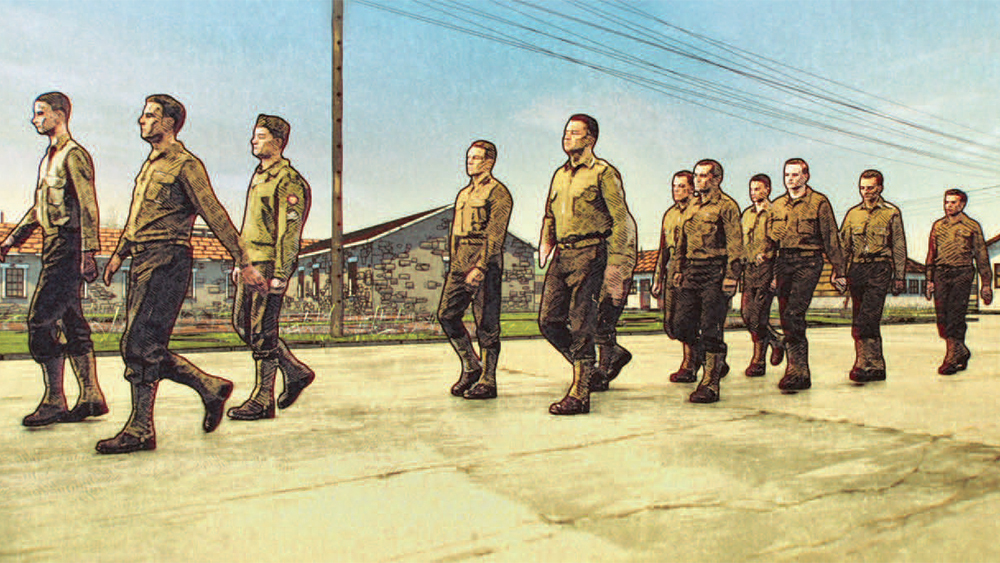
The series begins right in the middle of the Allied Invasion of Sicily. Sparks’ regiment is part of the 45th Infantry Division, also known as the Thunderbirds. During one of their missions, his men find a boy hiding in a ramshackle house. They later learn that his parents and grandfather have been killed. As a parting gift, the boy gives his family’s gun to Sparks, something that he will carry for the rest of the war. During an assault on an enemy position, Sparks is grievously wounded and sent to Algeria for treatment.
It is then that the story shifts to the time when Sparks met the men who would become closer to him than his own family: Samuel Coldfoot (Martin Sensmeier), Able Gomez (Jose Miguel Vasquez), and Joe Hallowell (Bryan Hibbard), to name a few. All of them were deemed difficult. And this was 1940s America, after all. There were racial and social stigmas, even in the army. But the group quickly realizes that their new C.O. is unlike any other they previously met. Inspired by his sense of honor and equality, they become the best squad in the camp.
In Algeria, Sparks refuses to accept that the war is over for him and hits a ride on a plane back to his men. He leads from the front as his men participate in some of the most critical battles of World War II European theatre, including the Battle of Anzio, Operation Dragoon, and the Battle of Aschaffenburg. Throughout the campaign, Sparks rises through the ranks to become a colonel. The journey of Sparks and his regiment ultimately ends after the liberation of the Dachau concentration camp.
The Liberator Ending
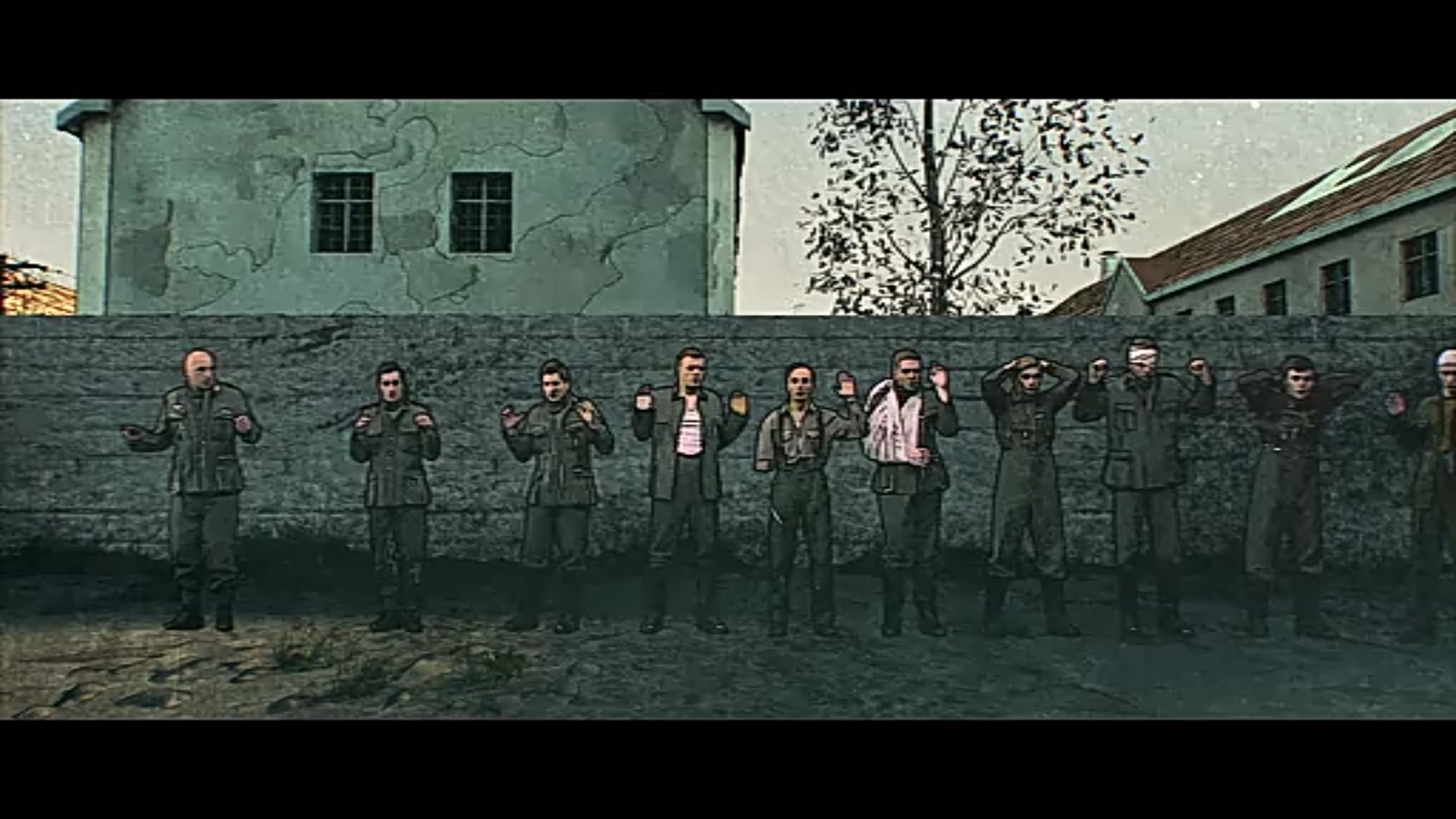
The title refers to the non-German European perspective about the Allied forces during the later stages of the war when men like Sparks and his soldiers liberated city after city from the German occupation. During this perilous journey, Sparks loses most of the men he started it with. Even Gomez dies during the Battle of Aschaffenburg. Despite witnessing all the nightmarish things that a man can do to another, he never loses his inner humanity.
Sparks is as horrified as any of his men by what he sees in Dachau but doesn’t let it control his emotions. When Walsh (Lorne MacFadyen) and some other soldiers begin shooting the German POWs, he intervenes, telling them, “… this is not what we came here to do. This is what we came here to stop.” This sense of lawful justice is prevalent in all his actions. The German POWs are not the camp guards; to begin with, they are wounded soldiers taking shelter in the camp.
However, for Sparks’ men, who first see a train full of dead bodies and then the skeletal prisoners and more dead bodies, it just doesn’t matter. They are Germans in uniform, and they are there, and that is enough. 17 POWs die and 12 others are injured. Although Sparks stops the shooting, it virtually ends his tenure on the frontlines of the war for good.
The Investigation
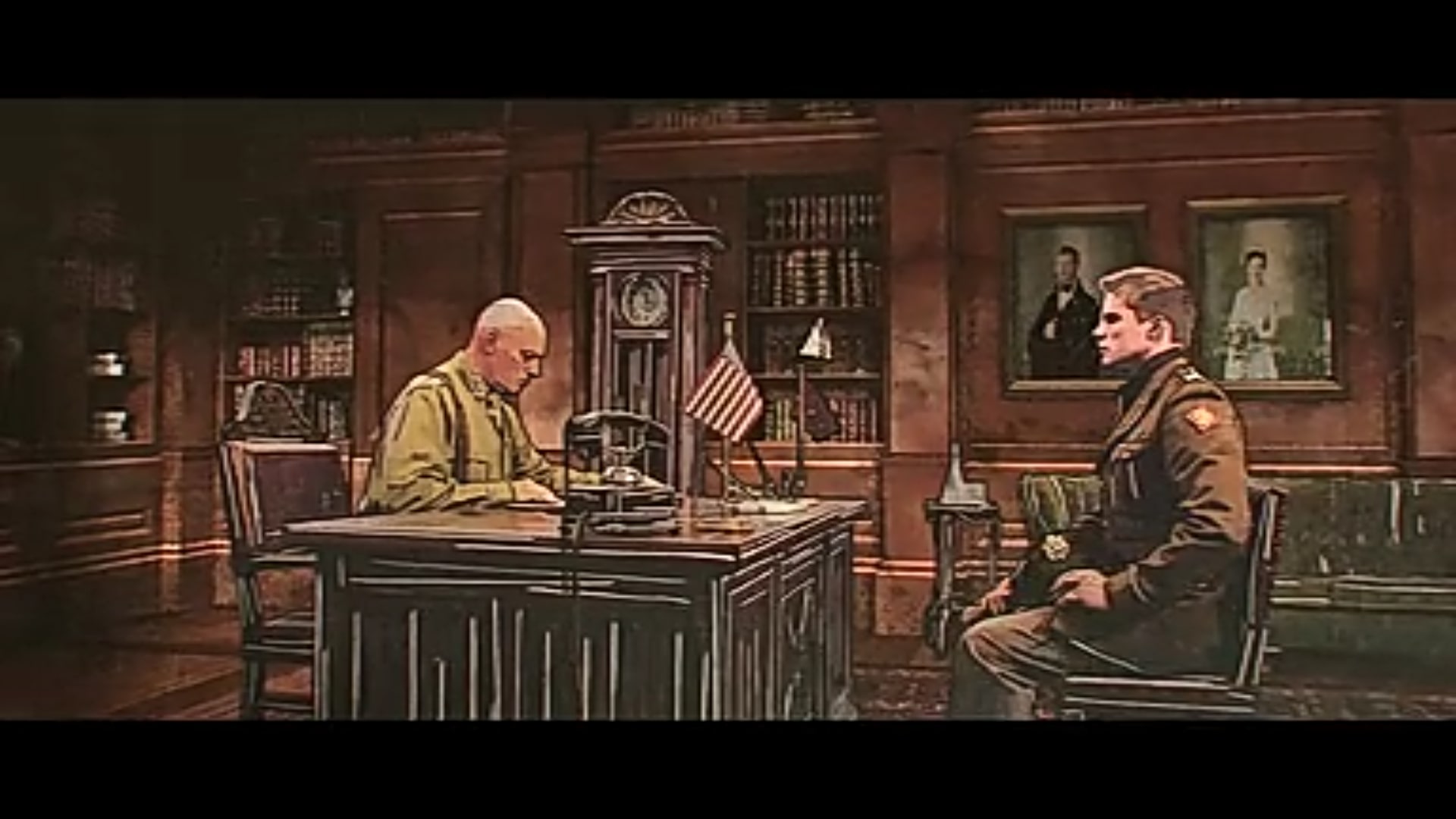
The shooting has a serious ramifications for Sparks and his men. Military officials thoroughly question Walsh and others who are directly responsible. During the interrogation, they kept reiterating that they were just following orders, that they had explicit instructions to hold the German POWs in the coal yard and not to let them escape.
They claim that they only started firing when the POWs tried to escape. Sparks, as their C.O., must face military hearings as well. Much to his surprise, the judge in his case turns out to be General S. Patton (Peter Woodward) himself, the commander of the U.S. Third Army in France and Germany. As General Patton goes through Colonel Sparks’ record, a camaraderie forms between the two battle-hardened warriors.
Both of them have sustained injuries in battle and acted insubordinately towards their respective superior officers. Sparks considers all the actions of the men under him as his responsibility. This further impresses the general. He accurately calls Sparks a hero and sends him home. Although Sparks’ military career is ending, the hearing ensures that he will be honorably discharged.
Memories of Fallen Comrades
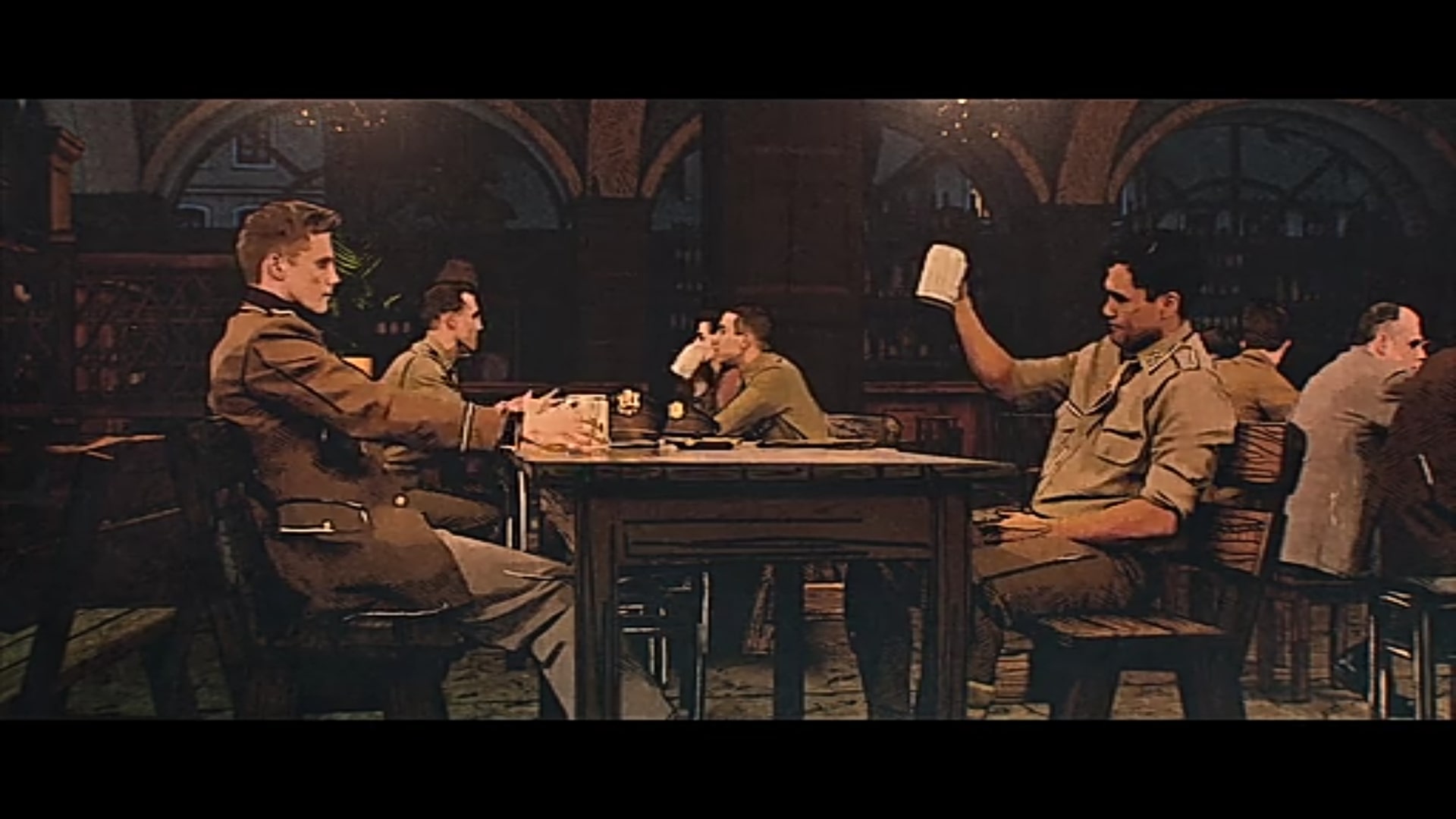
Sparks gets to see Coldfoot once more before both of them are sent back. In a bustling pub, they sit and drink and remember all the friends they have lost. Coldfoot reveals that he was going to kill an officer because of his racist behavior all those years ago when Sparks found him on his night out and made him a sergeant. Because of Sparks, his life was not destroyed for a lapse of judgment. When the two men part ways, it signals the war is truly ending.
Home
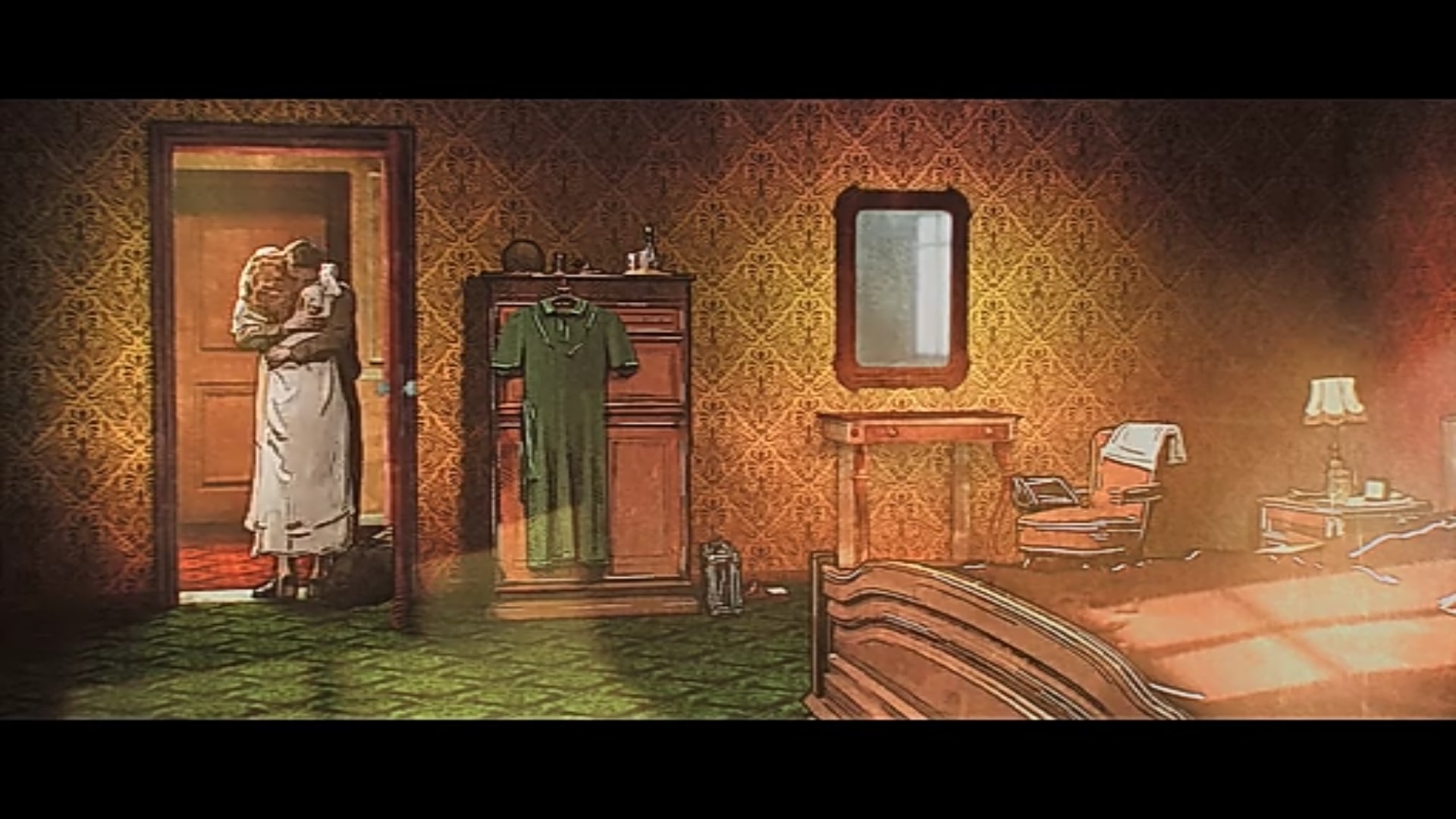
Sparks is subsequently put in charge of taking the soldiers back to the U.S. Throughout the series, Sparks writes these letters to his wife, Mary. In them, the stoic and quiet commander exposes his vulnerable side to perhaps the only person who is allowed to see it. The letters are incredibly candid, filled with his musings, fears, and hopes.
In the closing scenes, it is revealed that they have a “new son,” implying that they had a reunion at some point in the intermediate period. In his letters, Sparks expresses his fear that she will not like the man that he has turned into. They meet in a hotel in El Paso. The moment she opens the door and sees him, she clings to him as if her life depended on it. This is her way of showing that she fully accepts the man who has returned to her.

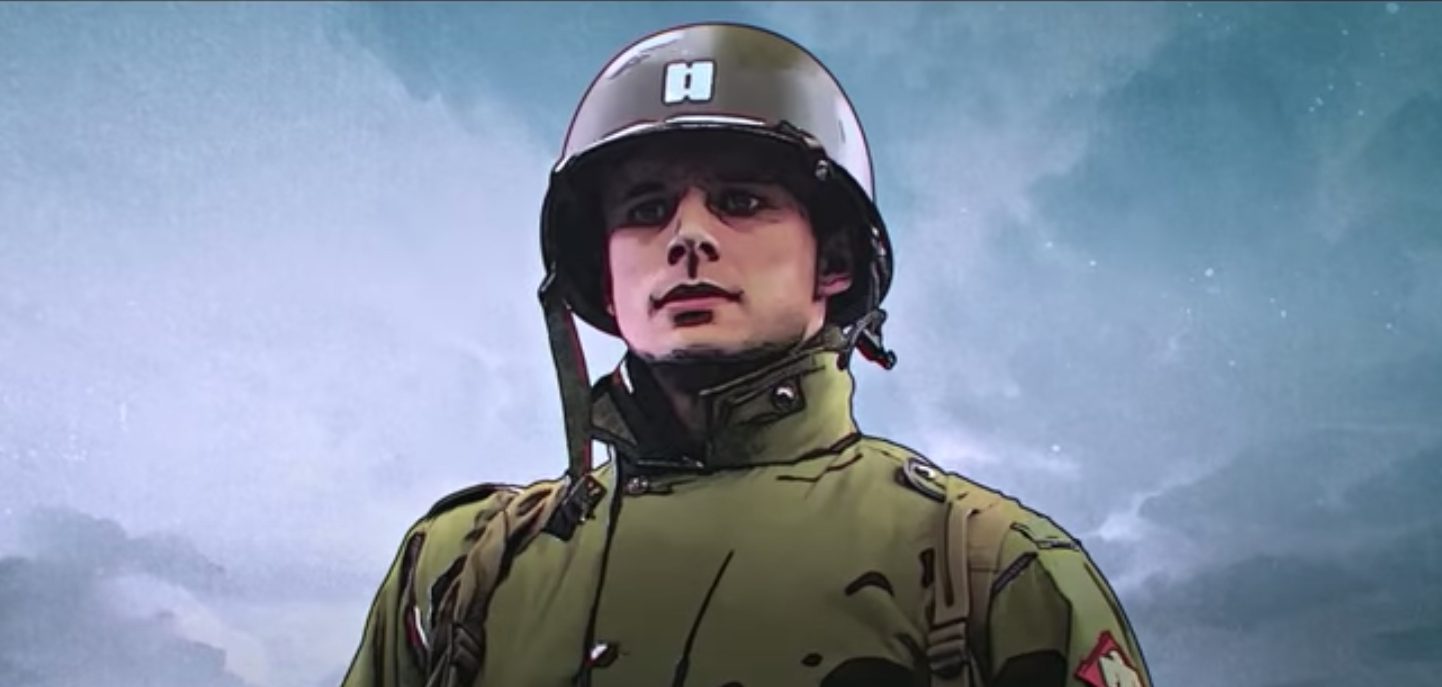
You must be logged in to post a comment.